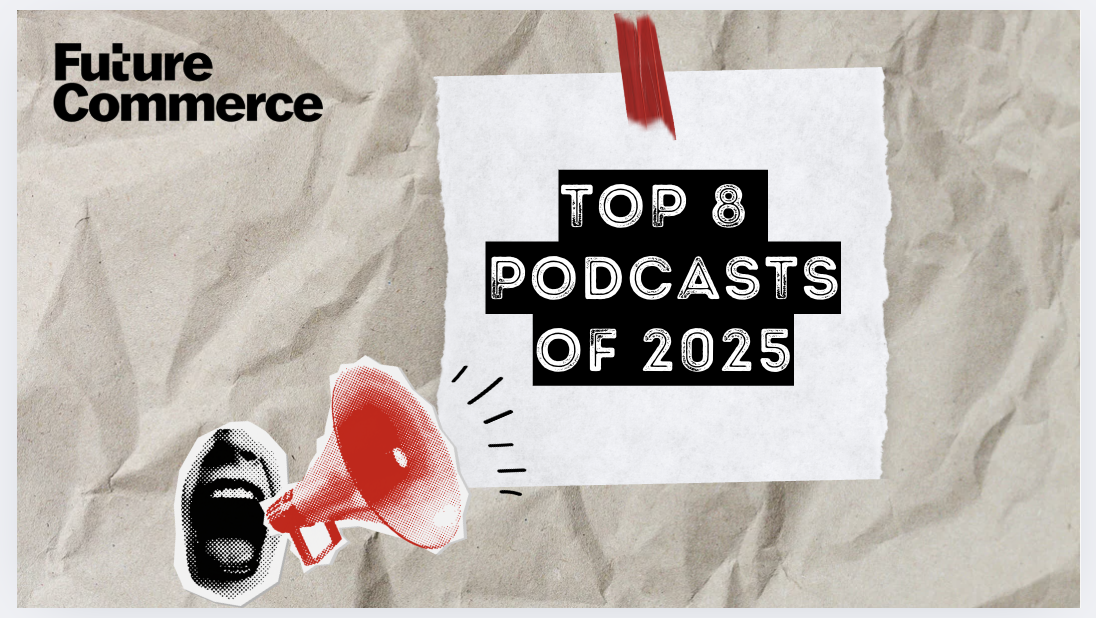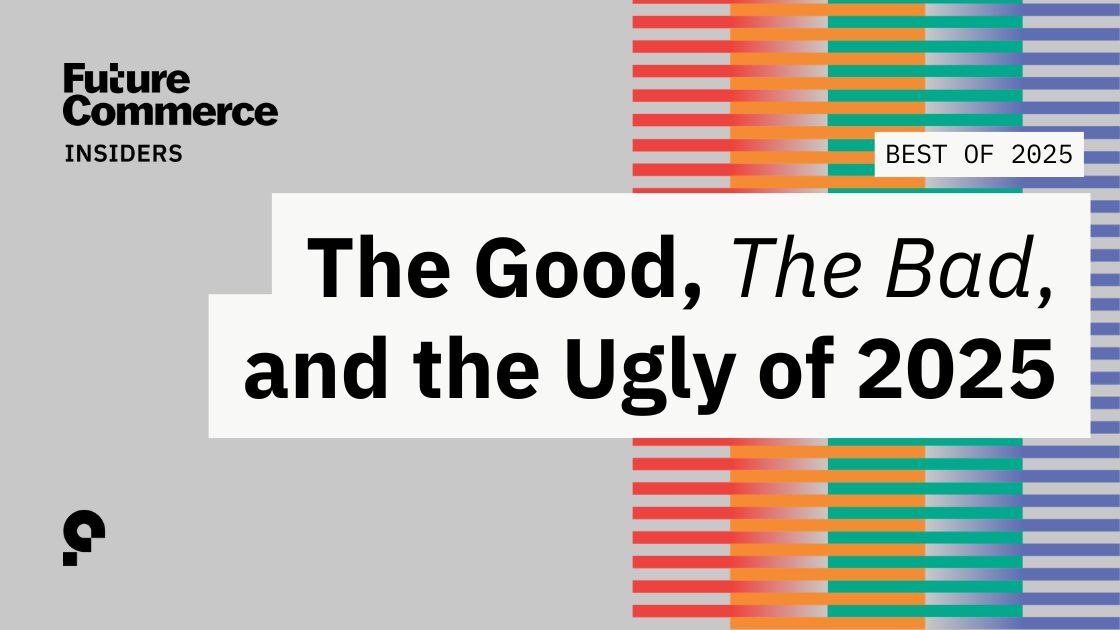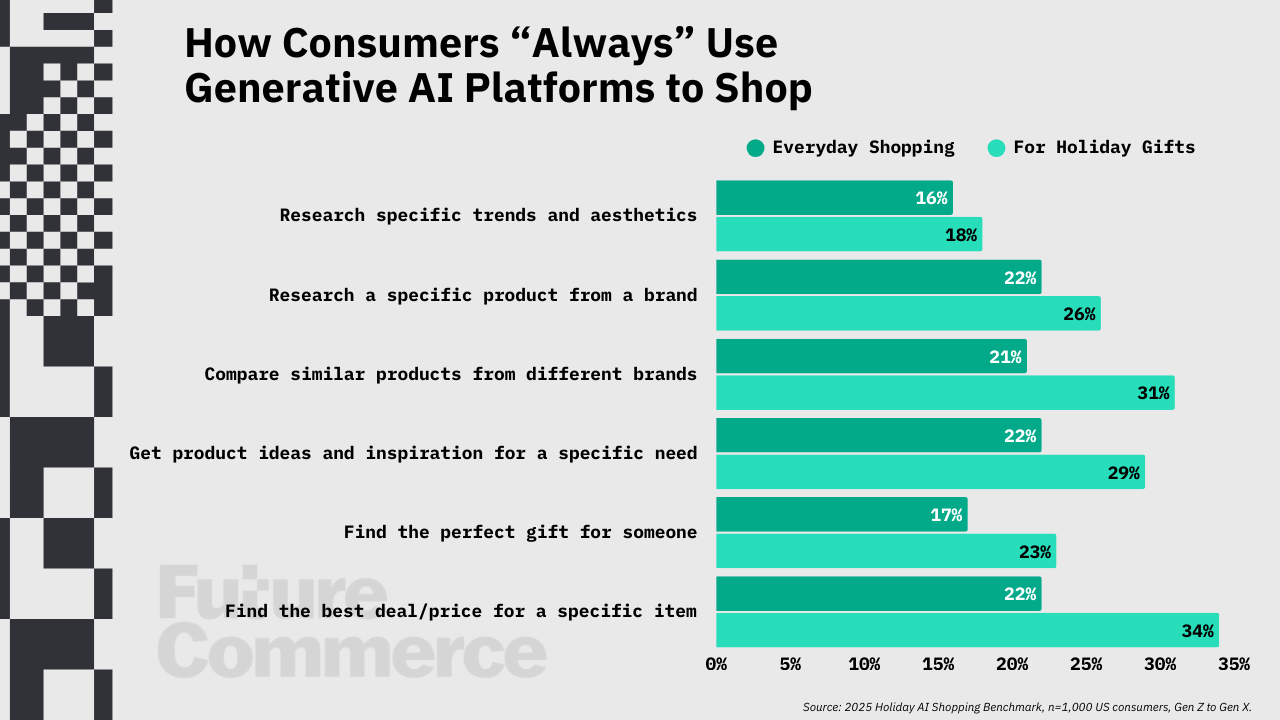
The Acceleration Economy: When 'Now' Becomes 'Not Soon Enough’


Welcome to Wednesday, futurists.
Time, Commerce's most precious commodity, is bending to new rhythms.
Legacy media giants (NBC, Fox, Paramount) court small merchants through Roku, while Barnes & Noble makes a contrarian bet on brick-and-mortar; private equity's dry powder burns a hole in institutional pockets as holiday shopping creeps ever earlier into autumn and it was a banger of a holiday for retail).
💨We're witnessing not just the acceleration of Commerce, but its temporal fragmentation—where the speed of now creates a counterculture of slow.
👾Perhaps that's why Atari's transformation of controllers into decanters feels less like nostalgia and more like prophecy?
Keep scrolling for this week’s stories. 📲
— Phillip
P.S. Our calendar of community events, professional development, and VISIONS Summits is now up on our website! Join us at one of our thought-provoking, engaging, and immersive shows this year. We see an event in your future.


The Small Screen's New Moguls. Legacy media titans NBCU, Fox, and Paramount partner with Roku to democratize TV advertising through a new platform, "Universal Ads," signaling a dramatic shift in how small businesses access broadcast audiences.
The move positions traditional media companies as unlikely champions of the small merchant class, aiming to compete with tech giants by aggregating inventory for first-time TV marketers. This represents more than mere market expansion—it's a tacit acknowledgment that the monoculture of mass media must fragment to survive.
The Holiday Acceleration. Despite this being the shortest-possible “Cyber-5” in the calendar. Adobe's Holiday Shopping data posted total online spending hit $241.4 billion this holiday season, a YoY increase of 8.7%. Mobile commerce reached a staggering $131.5 billion.
But the real story isn't just in the numbers—it's in the shifting temporality of Commerce itself. While Adobe tracks the traditional five-day corridor from Thanksgiving to Cyber Monday, merchants report their biggest days came earlier, suggesting our cultural definition of "holiday shopping" has become as fluid as our hybrid work schedules.
Our Take: The "earliness" of holiday shopping mirrors broader societal acceleration—we're not just shopping more, we're shopping differently. When Wednesday becomes the new Black Friday, we're witnessing calendar creep and a fundamental rewiring of commercial rhythms. This temporal disruption suggests a consumer base increasingly resistant to traditional retail calendrics, perhaps a harbinger of Commerce's next evolution: the death of the shopping "season" altogether.


Private Equity's Temporal Tension. A whopping $500 billion in uninvested private equity capital from 2020-2021 vintage funds now face a use-it-or-lose-it moment (see: KimK’s December exit from SKKY). This "dry powder" represents more than just idle capital—it's the physical manifestation of pandemic-era financial exuberance meeting post-pandemic market realities.
Barnes & Noble's Next Chapter. James Daunt's vision for an expanded Barnes & Noble empire, potentially culminating in a transatlantic IPO, reads like magical realism in our digital age. Speaking like a digital retailer, the bookseller's CEO cited an excited "Q5" intra-holiday period as key to their strategy, suggesting that perhaps the physical book's greatest advantage is its ability to fill the cultural void between seasons. This counter-intuitive expansion of brick-and-mortar retail space arrives precisely as other retailers retreat, positioning books as products and anchors of community experience.


Gaming's Toast to Nostalgia. Atari's new joystick decanter set transmutes gaming nostalgia into functional luxury, complete with controller-inspired glasses. This clever metamorphosis of the CX-10 controller decanter exemplifies how gaming culture continues to age like a fine whiskey—becoming more refined even as it maintains its playful spirit.

Accessibility's Catch-22. The Federal Trade Commission has fined AI accessibility vendor accessiBe $1 million for making deceptive claims, exposing the tortured economics of digital accessibility. While the penalty signals increasing scrutiny of AI hyperbole, it leaves untouched the underlying carnival of ADA Title III litigation that gave birth to such solutions in the first place.
Our Take: The accessiBe story reads like a Kafka-esque parable of modern commerce—where merchants face a binary choice between implementing imperfect AI solutions or risking the attention of “professional plaintiffs” who have turned web accessibility into a lucrative cottage industry. Since 2016, these lawsuits have proliferated, becoming the sword of Damocles hanging over every eCommerce operation, claiming high-profile scalps from Beyoncé's merchandise empire to mom-and-pop Shopify stores.
Lina Khan’s FTC has been eager to prove itself, to say the least. While laudable in its protection against misleading AI claims, it creates an asymmetric battlefield where technology vendors face accountability, but the litigation industrial complex continues unabated.
It's a peculiarly American scenario.











.svg)
